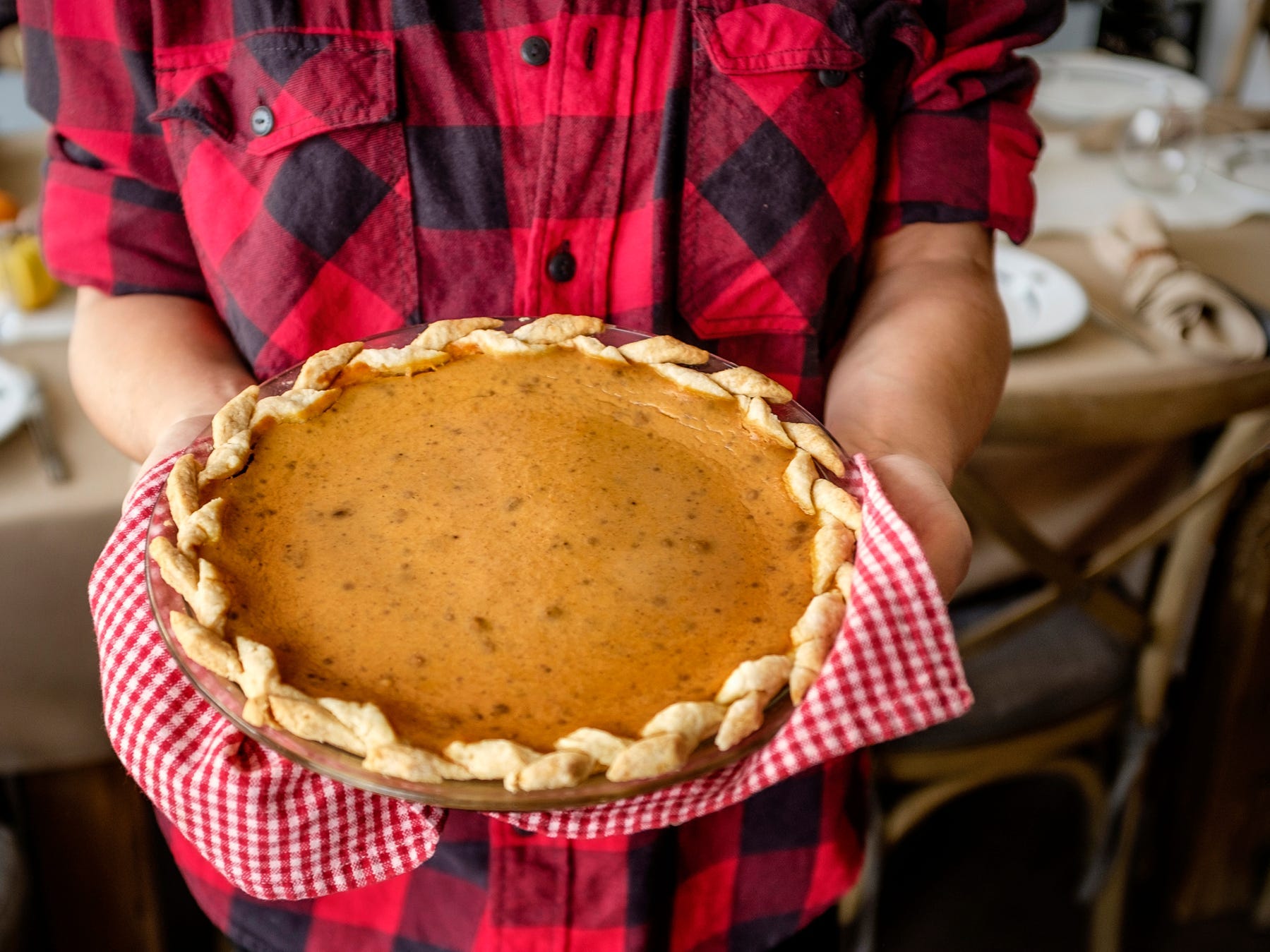
- The winter months offer many food-related holidays that can evoke fear and guilt about overeating.
- But a feast day doesn’t have to be a cheat day — it’s possible to indulge without derailing your diet or health goals, according to a nutritionist.
- Being flexible with your diet can make it easier to sustain and improve your success. Enjoy your indulgence, then get back to balanced eating habits like including plenty of veggies and fruits.
- Visit Insider’s homepage for more stories.
While many people eagerly await winter and the food-centric holidays it brings, celebrating with a big meal can also be a source of stress, anxiety, and guilt.
But holiday festivities don’t have to derail your diet or healthy habits, according to Bonnie Taub-Dix, registered dietitian nutritionist and author of Read It Before You Eat It — Taking You from Label to Table.
A few days of enjoying rich food and hearty portions is unlikely to offset any long-term progress on weight loss or fitness goals.
It can be anxiety-provoking, though, particularly if you have a complicated relationship with food. Allowing yourself to be flexible with your diet, and having strong healthy habits to return to post-holiday, can help keep you on track so you can enjoy feast days with less shame or stress.
“You should appreciate what you’re eating without guilt as a side dish,” Taub-Dix told Insider.
Don't feel guilty or try to punish yourself for indulging
It's important to give yourself permission to appreciate food, especially if you're trying to lose weight or otherwise make changes to your diet.
For this reason, Taub-Dix said she doesn't like the concept of a "cheat" day or meal, since it implies something negative when it should be an experience you enjoy.
"Why would that be associated with such a negative word? Shouldn't it be a decadent day or exciting day?" she said. "You should be able to eat things you like, because you're entitled to enjoy what you're eating."
Even if you do experience negative side effects of overeating (such as feeling too full, bloated, hungover, or anxious), trying to punish yourself can only make things worse.
Feelings of guilt and shame related to food can have negative affects on your mental health. Counter-intuitively, this stress can make it more likely you'll repeat the unwanted behavior.
The same is true with detoxes (which don't work) and excessive exercise the day after, which only reinforce that the behavior was "bad" and can cause additional stress.
Instead, remember that one meal or even a full day of eating differently isn't going to cancel out weeks or months of hard work.
"An indulgent day really shouldn't mess with your goals unless it messes with your head," Taub-Dix said. "You shouldn't punish yourself if you overate."
Work on building good habits
To set yourself up for success around holiday meals, Taub-Dix recommends establishing good habits you can use for different occasions.
For food-related events, she suggests prioritizing what you're most exciting about eating, and pacing yourself with smaller portions.
"My key words here are unique and sample," Taub-Dix said. "Focus on what's unique, that you might not get to have at other times, and then remember you can just sample it — you don't have to have a huge portion to enjoy it."
Then, when you return to your regular routine, writing down what you eat in a food journal can get you back on track, Taub-Dix said.
This doesn't have to involve tracking calories, carbs, or sugar, although you can. You also don't have to show anyone, or even keep a record of it. It's more about bringing awareness to what you're eating throughout the day, and creating the opportunity to swap out healthier options if you don't like the results, she said.
"There's no right or wrong way to do this, and it's not a punishment," Taub-Dix said. "Food journals help you connect to what you're putting in your mouth and how you're feeling."
Practice mental flexibility and avoid extremes
One of the best things you can do, year-round, is steer clear of all-or-nothing approaches to your diet.
That means avoiding excessively strict diets. Severely limiting foods can make them even more tempting, leading to cycles of short, unsustainable restriction followed by binges.
"The biggest mistake people make is feeling like they need to be really strict on a diet," Taub-Dix said. "When a holiday comes up they feel like they have to go crazy eating without thinking about how they feel."
Instead of cutting out whole food groups, she recommends adding a healthy salad or soup to a meal, or making sure you fill half your plate with veggies and fruits. Similarly, instead of feeling like you need to exercise for hours after a feast, try adding in a short walk or two as part of your routine.
Simple changes like these will be easier to keep up, and more successful in the long term, she said.
That also means there are no hard-and-fast rules for when it's okay to indulge. Taub-Dix recommends trying to stay in tune with your personal preferences, and eating good food in a way that makes you feel good, too.
"Healthy eating is something you should try to be doing a majority of the time, but part of what's fun with eating is when you get to be spontaneous," she said.
Read more:

